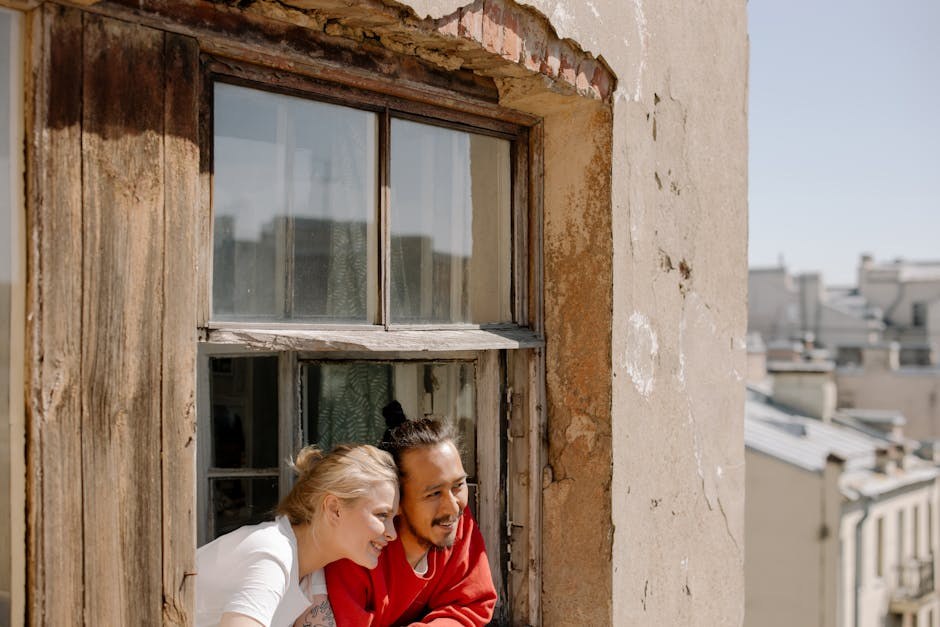Deciding what to do with your pubic hair can feel surprisingly complex – part comfort, part aesthetics, part practicality. Some people love a clean, slick finish; others feel most themselves with everything left as nature intended; many discover that a neat trim lands right in the middle. There isn’t a single correct route, only the one that supports your comfort, your skin, and your preferences. This guide walks through why pubic hair exists, what each approach can offer, and how to match a grooming style with your lifestyle without second-guessing your choice.
Why pubic hair is there in the first place
Pubic hair didn’t show up by accident. It acts as a soft barrier that helps reduce friction, buffers delicate skin during movement, and limits direct contact with microbes. Think of it as protective gear built in by biology – a modest layer that cushions and supports an area with thinner, more reactive skin. It also tends to arrive alongside puberty, signaling sexual maturity, which is why its presence carries social meaning even if we rarely say that out loud.
Culture adds another layer. Styles wax and wane – from fully natural to closely trimmed to totally bare – and trends can make any one option look like the default. But the default is whatever keeps you comfortable. Pubic hair, trimmed or untouched, isn’t a moral statement; it’s maintenance. If a certain look feels right on your body and works with your routine, that’s the right choice.

Keeping it natural: benefits to consider
Choosing not to remove pubic hair is more than “doing nothing” – it’s a choice with practical upsides. Here’s why the untouched route can be a win.
A built-in protective layer
Pubic hair forms a soft barrier that helps trap debris and reduce skin-to-skin and fabric-to-skin friction. That cushioning can be helpful during daily movement and intimate moments alike, guarding sensitive skin without extra effort.
Less risk of razor bumps and ingrowns
Skip the blade and you skip the usual culprits – razor burn, micro-nicks, and ingrown hairs. If your skin bristles at frequent shaving or waxing, keeping pubic hair can mean calmer, happier skin.

Time and budget friendly
No routine appointments, no restocking cartridges, no specialized lotions. Letting pubic hair be can simplify your bathroom shelf and your schedule, a quiet relief for anyone who’s tired of constant upkeep.
Comfort during movement
That soft layer helps minimize rubbing – a small detail that matters on long walks, intense workouts, or steamy summer days. For some, natural pubic hair simply makes daily life feel easier.
Temperature and sweat management
Pubic hair can help wick moisture away from the skin and reduce stickiness. When you’re overheated or wearing snug layers, that little buffer can keep everything feeling more balanced.

Body confidence on your terms
Leaning into your natural baseline can feel quietly empowering – a way to honor what your body does well without asking it to be different. If you want your grooming to support self-acceptance, leaving pubic hair intact may align beautifully.
Fewer worries about mishaps
No blades, no wax, no accidental nicks. For many, the absence of risk is its own kind of calm – no need to navigate tricky angles or soothe irritated skin later.
Softness can enhance intimacy
Two natural textures can feel pleasantly cushioned together. The result – less scraping, less distraction, more comfort – can keep the focus where you want it.
Potential drawbacks of staying natural
Natural has trade-offs. If you enjoy the advantages above but notice any of the following, a simple tweak – like a light trim – might address them without changing your overall choice.
More moisture, especially in heat
Pubic hair can hold onto sweat. On active days or in warm climates, that lingering dampness can feel less than fresh. Strategic washing and breathable fabrics help, but it’s something to note.
Tangles and tugging
Longer strands can knot and pull, which is uncomfortable in tight clothing or during sudden movement. A brief comb-through in the shower or a small trim can reduce snags.
Harder to spot skin changes
Dense pubic hair can make it trickier to notice bumps, rashes, or irritation. Occasional checks after bathing – when hair is softer and parts easily – can keep you informed.
Friction with certain fabrics
Rough seams and tight synthetics may rub. Opting for smoother, breathable underwear can minimize that issue and keep sensitive skin calmer.
Menstrual hygiene can feel fiddlier
For those who menstruate, pubic hair may make cleanup feel more involved. A modest trim often balances dignity and ease without abandoning the natural look.
Stronger scent retention
Hair can hold onto odor, particularly with sweat. Regular washing is the simple antidote – a gentle clean keeps pubic hair soft and neutral.
Social noise you didn’t ask for
People often have opinions about body hair. Remember, that commentary is about their conditioning, not your body. Your pubic hair is not a community project.
Going bare: advantages of removing it all
Many love the look and feel of completely smooth skin. If you’re drawn to the pared-down aesthetic, these benefits might resonate.
Heightened sensation
Without the buffer of pubic hair, skin can feel touch and temperature more directly. Some people describe a crisp clarity of sensation – light fabric drape, fresh air after a shower – that feels intensely pleasant.
Clear view of skin health
No coverage means you can spot new bumps or irritation quickly. That visibility helps you respond sooner with rest, moisture, or a product timeout.
Aesthetic preference
Plenty of people simply prefer the look of a smooth canvas. If that polished finish supports how you feel in your body, it’s a valid reason on its own.
Less odor trapped in hair
Removing pubic hair can reduce how much scent lingers after sweating. For anyone self-conscious about odor, a bare approach may feel reassuring.
Streamlined surface for art or hardware
For tattoos or piercings in the region, smooth skin can make placement and healing feel more manageable and visually clean.
Comfort in tight athletic wear
With snug gear, less hair can mean less rubbing. Many active people appreciate the minimal friction during training or long runs.
Confidence through control
For some, the ritual of shaving or waxing functions like grooming any other area – a way to curate appearance with intention. That sense of agency can boost confidence.
The bare choice: what to watch out for
A smooth finish has its own set of maintenance realities. Planning for them keeps the experience comfortable.
Friction and irritation
Once pubic hair is removed, skin meets fabric and skin more directly. Movement in tight garments can cause redness or chafing. Gentle fabrics and mindful post-shower care help greatly.
Risk of bumps and infection
Shaving and waxing can create micro-abrasions – tiny openings that welcome irritation. Clean tools, unhurried technique, and soothing aftercare make a noticeable difference.
Heat and moisture management shifts
Without pubic hair, sweat may sit more directly on the skin. That can mean more frequent washing, especially after workouts, to keep everything calm.
Cost and time add up
Regular appointments, or the constant cycle of razors and lotions, ask for ongoing attention. If your schedule is maxed out, that maintenance can feel like a chore.
Texture changes over time
Frequent hair removal can leave skin feeling drier or more reactive. A steady routine of gentle cleansing and light moisture helps maintain balance.
Prickly regrowth phase
Hair needs a little length before the next removal, and regrowth can feel sharp. Patience – plus soft fabrics and hydrating lotion – helps you ride out the in-between days.
Tricky angles and delicate terrain
The scrotum, labia, and perianal area demand a slow, careful hand. Rushing invites nicks. Taking time and using stable lighting transforms the experience.
Ongoing care becomes a habit
Once you choose smooth, staying smooth becomes a repeating task. If you prefer set-it-and-forget-it routines, consider whether bare matches your bandwidth.
Ingrown hairs
When cut hairs curl back toward the skin, they can create tender bumps. Trimming with the grain and avoiding excessive pressure helps reduce the issue.
Trimming: the balanced middle ground
Trimming shortens pubic hair without removing it at the skin surface. For many, it captures the neatness they want while keeping the body’s natural buffer. It’s also highly customizable – a quick tidy, a precise shape, or a close clip.
Upsides of trimming
Neat, tailored appearance
Sharpened edges and a shorter length read intentionally groomed without going all the way to bare. You can communicate care and still lean into comfort.
Control where you want it
Keep a defined patch, clean the bikini line, or shorten everywhere for easy washing – trimming lets you decide what stays and what gets shorter. Pubic hair becomes a design choice rather than a binary.
Fewer ingrowns than shaving
Because trimming doesn’t cut hair at the skin’s surface, it usually reduces the chance of hairs curling inward. For sensitive skin, that alone can be a decisive benefit.
Lower irritation overall
No blade against delicate skin means fewer angry patches afterward. If you’ve struggled with rashy aftermath, trimming offers relief.
Hygienic but low effort
Shorter pubic hair is easy to wash and dry, yet trimming doesn’t demand constant upkeep. Set a schedule – weekly or biweekly – and you’re done.
Styling flexibility
From a soft triangle to a slim landing strip, trimming accommodates creativity without committing to full removal. Your look can evolve as your mood does.
Comfortable regrowth
As hair grows, it’s rarely as prickly as post-shave stubble. That smooth transition can spare both you and your partner needless scratchiness.
Preserves natural functions
You still keep the protective benefits of pubic hair – just in a more streamlined version. It’s the buffer you want, tidied to suit your lifestyle.
Cost-effective
A reliable trimmer lasts a long time. Once you have a tool you trust, maintenance is mainly cleaning the head and occasionally replacing a guard.
Trimming trade-offs
Possible nicks
While safer than blades, trimmers can still catch the skin. A steady hand, a guard, and slow passes keep mishaps rare.
Regular touch-ups needed
Pubic hair grows at its own pace, so you’ll revisit the task to maintain length. The cadence is gentler than shaving but still ongoing.
Cleanup required
Unlike shower shaving, trimming can scatter clippings. A towel catch or quick rinse of the area makes post-trim cleanup simple.
Evenness can be tricky
Hard-to-see spots may end up a bit longer or shorter. Mirrors, good lighting, and a patient pace help you dial in a consistent finish.
Upfront tool purchase
A quality trimmer is an investment – not constant, but real. Keeping the blades clean and sharp pays you back in comfort.
Not glass-smooth
If your goal is a totally bare feel, trimming won’t deliver that. It aims for tidy and soft, not polished and slick.
How to decide: matching style to your life
When the choices all seem reasonable, it helps to zoom out. Consider your day-to-day reality – then let that guide your grooming style.
Start with comfort
Ask what feels good on your skin. If shaving stings or waxing leaves you tender for days, trimming or staying natural could be kinder to your body. Your pubic hair should support you, not preoccupy you.
Your partner’s input – within reason
In a relationship, preferences naturally surface. Listening is part of intimacy, but your body is your call. Find overlap if you want to, but don’t outsource your comfort.
Experiment safely
Try a trim before a full removal; shift from bare back to a soft clip if you miss the buffer. Gentle tools, unhurried technique, and clean skin are the non-negotiables.
Lifestyle and sweat level
If you’re training hard or live in heat, you may prefer less length for quicker washing and drying. A tidy trim often strikes a perfect balance.
Sexual comfort
Some enjoy increased sensation with less hair; others value the soft cushion of natural pubic hair during intimacy. Notice what your body tells you over time – it’s the best feedback you’ll get.
Maintenance bandwidth
How often are you willing to groom? Bare requires frequent touch-ups; trimming settles into a relaxed rhythm; natural asks for almost none. Choose what aligns with your schedule.
Skin sensitivity
If you’re prone to redness, bumps, or ingrowns, trimming or natural are often friendlier. If your skin tolerates removal well, bare can still be comfortable with good care.
Aesthetics you love
Grooming is self-expression. If a precise line makes you smile in the mirror, honor that. If a soft, unedited look feels most “you,” that’s equally valid.
Hygiene routine
Whatever you choose, consistent washing is the anchor. Short pubic hair is easy to cleanse; natural hair benefits from gentle lather and thorough rinsing; bare skin appreciates mild products and light moisture.
Your body, your baseline
What you do with your pubic hair belongs to you – full stop. Trends come and go, but your needs stay personal. If natural gives you comfort, keep it. If trimming keeps sweat and tangles in check while preserving softness, embrace that middle path. If a smooth look makes you feel polished and confident, that’s a valid and thoughtful choice, too.
The most helpful approach is the one that respects your skin, fits your lifestyle, and steadies your sense of self. Choose the style that helps you move through the world with ease – today, next week, and whenever your preferences evolve. You’re allowed to change your mind, adapt with the seasons, and treat your grooming like any other part of self-care: responsive, flexible, and yours.